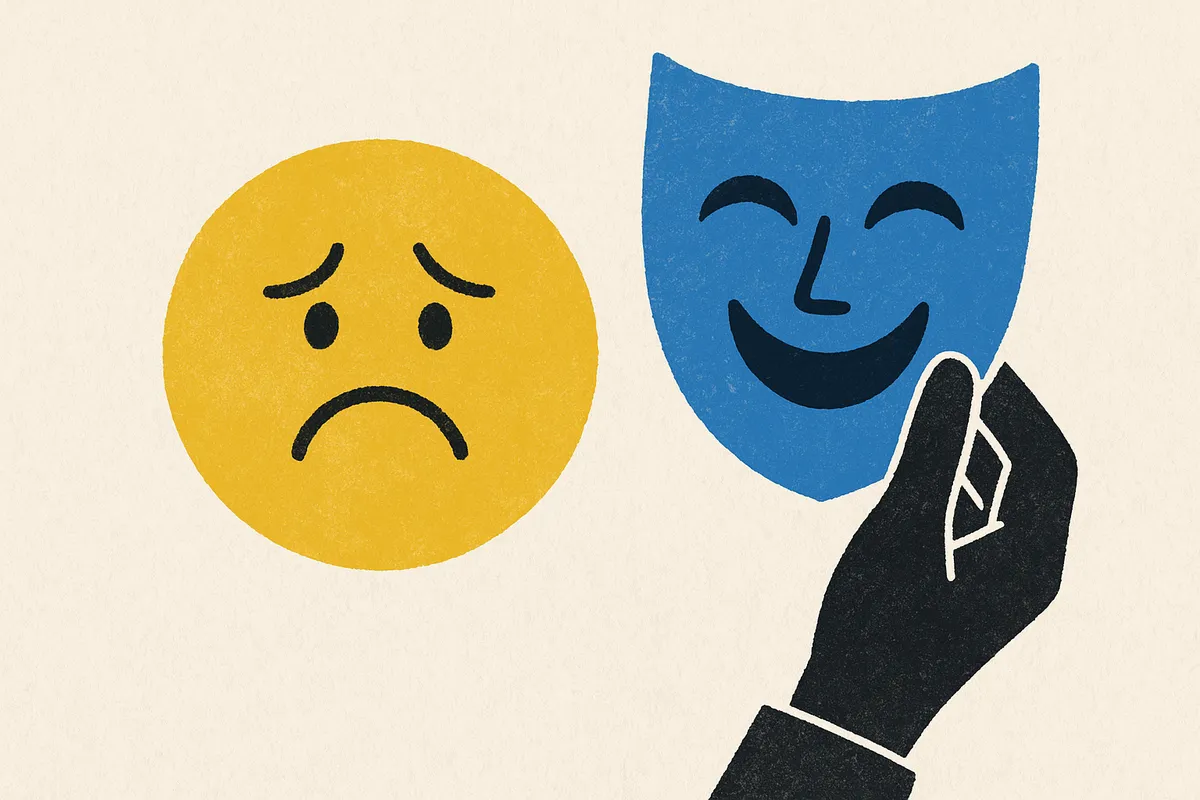When “Modern ABA” Just Means Better Branding

Autism Parenting Magazine wants you to know that you’ve misunderstood ABA.
According to their article, “ABA Therapy: Common Misconceptions,” Applied Behavior Analysis isn’t abusive. It doesn’t erase personality. It’s not just about compliance. You’ve just been listening to outdated critiques, they say — and if you understood what ABA really looks like today, you’d be reassured.
Let’s pause right there.
Because what’s being offered here isn’t a new practice. It’s a new PR strategy — one that sanitizes control by rebranding it as care.
The article insists that “modern ABA” is kinder, gentler, more individualized. That therapists now focus on communication, independence and life skills — not rigid compliance. That critics are simply stuck in the past. But what it never does is ask the question autistic people have been asking for decades:
Independence on whose terms? Communication measured by whose comfort? And what is being lost when difference is treated as a problem to solve?
Same goals, softer language
ABA, even in its updated forms, still operates on the same behavioral assumptions: that autistic behavior is wrong, that neurotypical behavior is the goal and that external rewards can be used to reshape a child into something more acceptable.
The article doesn’t challenge those assumptions. It reinforces them — but with friendlier vocabulary.
It says ABA promotes “functional” behavior. But who defines what’s functional?
It says ABA builds “communication.” But does that include AAC? Echolalia? Silence?
It says ABA supports “independence.” But too often, that means: how can we get this child to need us less — faster — regardless of how that pressure lands on them?
When therapy is measured by how much we disappear into normalcy, it’s not support. It’s assimilation.
Whose voice counts?
The author is a Board Certified Behavior Analyst. No surprise. There are no autistic voices cited. No reflection on trauma. No mention of the overwhelming rejection of ABA by many autistic adults, including those who were once considered “success stories.”
Instead, those critiques are flattened into “misconceptions.” Smoothed over. Swept aside.
Let’s be clear: many of us were that kid. We smiled on cue. We sat on our hands. We made eye contact even when it felt like our eyeballs were fire. We earned our gold stars by pretending not to be in pain.
And now you want to tell us it wasn’t that bad?
The real misconception is thinking you get to define what harm feels like — while ignoring the people who lived it.
A science of obedience
ABA doesn’t study meaning. It studies output. It doesn’t ask why a child flaps, repeats, retreats. It asks: how do we make it stop?
And that’s the heart of the problem — not just what ABA does, but what it fails to imagine.
It can measure reduction. It cannot measure dignity.
It can increase eye contact. It cannot increase self-worth.
It can shape behavior. But it cannot shape a world where those behaviors are safe.
We are told ABA is data-driven. But what gets tracked is compliance, not consent.
And here’s the cruelest irony: ABA teaches that behavior is communication — and yet it refuses to listen when autistic adults use their voices to say, “this hurt me.”
“But it helps some people”
Sometimes it does. We live in a world that punishes difference. And for families trying to navigate systems that only respond to “normality,” ABA can feel like the only path to safety.
But let’s not confuse survival strategies with ethical care.
Many families don’t choose ABA because they believe in it. They choose it because insurance will pay for it. Because it’s all that’s offered. Because the system made sure no better option existed.
And when a therapy is designed to make us easier for others — not safer in ourselves — even its “success” comes at a cost.
What ABA doesn’t want to reckon with
This Autism Parenting Magazine article wasn’t written to open a dialogue. It was written to maintain control.
To protect the reputations of providers.
To quiet the voices of survivors.
To rebrand compliance as progress.
“Modern ABA” doesn’t mark an ethical evolution. It marks a shift in marketing — away from the word obedience, toward words like life skills, adaptability, success. Words that sound neutral but still mean: stop being so spectrumish.
That’s not new therapy. That’s new packaging.
ABA doesn’t need a facelift. It needs accountability:
- A reckoning with its past,
- A reckoning with its incentives,
- And above all, a reckoning with the people it was done to.
You can call it kind. You can call it play-based. You can call it individualized.
But if it still teaches us that our value lies in how well we mimic someone else — it’s still harm.